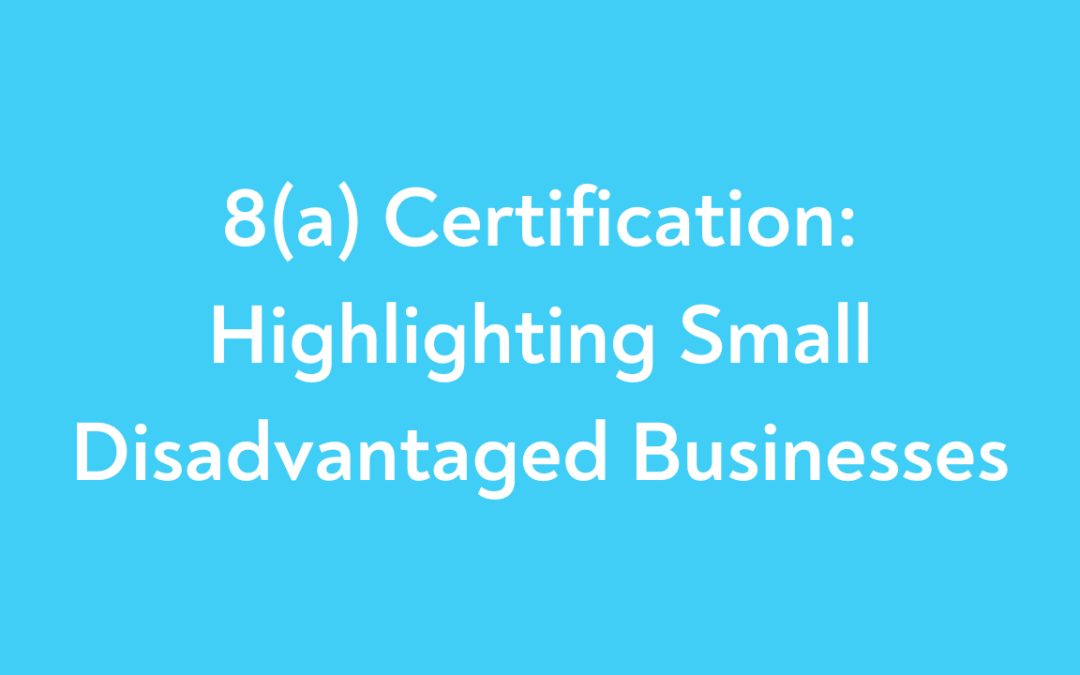What is 8(a) Certification?
The 8(a) Certification, part of the 8(a) Business Development Program, is an initiative by the U.S. Small Business Administration (SBA). It aims to aid small businesses that are owned and operated by socially and economically disadvantaged individuals. The program offers a broad scope of assistance, including mentorship, training, and contracting opportunities.
The History of the 8(a) Certification
In 1968, the U.S. Congress identified a need to assist socially and economically disadvantaged individuals in the business sector. This led to the creation of Section 8(a) of the Small Business Act. Initially, the 8(a) program was geared primarily towards supporting minority-owned businesses in getting a foothold in federal contracting, a space where they were significantly underrepresented.
Throughout the years, the definition of “disadvantaged” expanded to be more inclusive, accounting for various marginalized groups based on race, ethnicity, and economic backgrounds. As the program grew, so did its offerings. Beyond just contracting opportunities, the 8(a) program started providing holistic business development support, including mentorship, training, and networking opportunities.
The 1980s and 1990s saw further enhancements, with the introduction of the Mentor-Protégé Program and an increased emphasis on joint ventures. These changes were made to ensure that 8(a) businesses were not just winning contracts but also growing sustainably.
Why Get Certified?
- Federal Contracting Opportunities: 8(a) certified businesses can receive sole-source contracts, up to a ceiling of $4 million for goods and services and $6.5 million for manufacturing.
- Competitive 8(a) set-asides: These are contracts bid on only among 8(a) certified firms, increasing the chances for these businesses to win bids.
- Joint Venture Opportunities: The program allows 8(a) firms to form joint ventures with larger firms, combining strengths to bid for larger contracts.
- Business Development Support: The SBA offers executive education, training, and access to surplus government property and supplies.
- Mentor-Protégé Program: New and established businesses can enter into agreements where the mentor offers business development guidance to the protégé 8(a) firm.
How to Get Certified
The SBA has set criteria to ensure that the program aids the businesses that truly need the support.
Minimum Requirements
- The owner must be an American citizen by birth or naturalization.
- The business must be a small business as defined by the SBA.
- At least 51% owned and controlled by U.S. citizens who are economically and socially disadvantaged.
- Management and daily operations must be run by the disadvantaged individual(s).
- The owner must demonstrate personal net worth under a set limit, excluding personal residence, business assets, and retirement accounts.
Certification Process
- Prepare Necessary Documents: This includes financial statements, tax returns, and personal history statements.
- Submit Application: Complete and send the certification application to the SBA.
- Undergo Review: The SBA reviews the application, which might include interviews and site visits.
- Receive Certification: Once approved, the business enters the 8(a) program, which lasts for nine years, assuming the business continues to meet the program’s criteria.
Additional Resources


Recent Comments